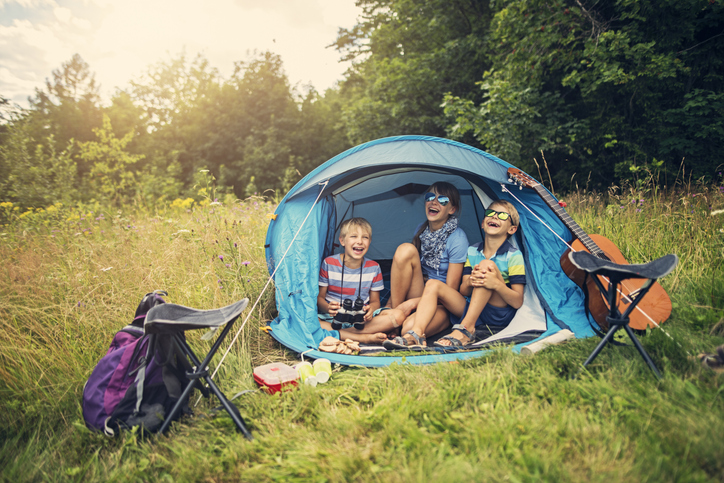Adventure sports. It’s something that lots of people get really excited about, especially when on vacation. But what about when it comes to kids?
There has been a lot of debate about letting kids take part in extreme adventure sports. A popular article published in The New Yorker raises some concerns. While it may not have condemned such behaviour, it does seriously question the impact it has on children. So, let’s take a look at the question, should kids be allowed to do adventure sports?
What’s So Great About Adventure Sports?

Adventure sports are undeniably attractive to many energetic and thrill-seeking kids. Sports like rock climbing, snowboarding, surfing, skateboarding, skiing, and mountain biking (just to name a few), thus have lots of appeal. They don’t have many of the rules and pressures of traditional team sports, and they still have all the benefits of outdoor physical activity.
It’s easy to see why some kids are attracted to these more individualistic forms of self-expression, whatever their age. Some also point out that they give kids the opportunity to gain strength and endurance while learning how to take age-appropriate risks, overcome their fears and push their limits. When properly coached and supervised, extreme sports can be a part of a healthy, balanced life.
According to Jamie Burr, a professor of exercise physiology, “If kids believe that they aren’t
challenged by an activity, they might lose interest. It’s important that young people learn to take chances and push their boundaries.” He also believes that, while (some) adventure sports may be associated with higher risks of injury, these are very important for kids to “figure out when to take risks—and when not to. Risk-free activities deprive kids of the opportunity to test themselves and overcome their fears. Risk is a fact of life.”
How Can Adventure Sports Be Bad?

But, to others, these very risks are what makes these “alternative” sports a bad choice. They say that extreme sports can often lead to extreme injuries, especially as young thrill seekers may attempt stunts that are too advanced for them.
“Kids aren’t mentally ready for these activities,” says professor of orthopaedics, Vani Sabesan. “They tend to underestimate risk, and their parents can’t always be trusted to keep them in check.” She also points out that “Even the most advanced protective equipment can’t prevent all injuries. Helmets aren’t made to withstand the high-level impact of these sports.”
Such sports also often require significant technical ability and skill to do right. Kids can’t just decide to start snowboarding or surfing, for example, and do it right away, unlike so many other types of sports. They need to be taught and guided before they can even begin.
What Does This All Mean For My Kid?
 But let’s be real. Most kids do all kinds of risky stuff whether you want them to or not. Climbing trees, sliding down bannisters, and even rollerskating and cycling are seen as common childhood activities.
But let’s be real. Most kids do all kinds of risky stuff whether you want them to or not. Climbing trees, sliding down bannisters, and even rollerskating and cycling are seen as common childhood activities.
Adventure sports have many of the same risks and dangers. But, they have an additional sense of adventure and courage that is important to instil in young children. As always it up to parents to decide what’s best for their kids. But, if you do decide that extreme adventure sports are a bit much, do try to introduce other forms of outdoor adventures into their lives (lest they get what child advocacy expert Richard Louv calls “nature deficit disorder”)
 While it is a parent’s job to keep your kids safe, don’t let it be at the cost of them developing judgement skills, build self-confidence, relieve stress, and promote physical fitness – all of which are vital for growing kids. Camping under the stars, fishing, stargazing, or even just playing in the woods can help a lot in building the same sense of self-confidence and risk-taking as in adventure sports.
While it is a parent’s job to keep your kids safe, don’t let it be at the cost of them developing judgement skills, build self-confidence, relieve stress, and promote physical fitness – all of which are vital for growing kids. Camping under the stars, fishing, stargazing, or even just playing in the woods can help a lot in building the same sense of self-confidence and risk-taking as in adventure sports.
Also Read: Why We Need to Start Encouraging Kids to Travel
So, I suppose that the moral is that it’s important to encourage kids to express themselves physically; whether that’s through extreme adventure sports, team-oriented sports, or some other interaction with the great outdoors. What do you think?


